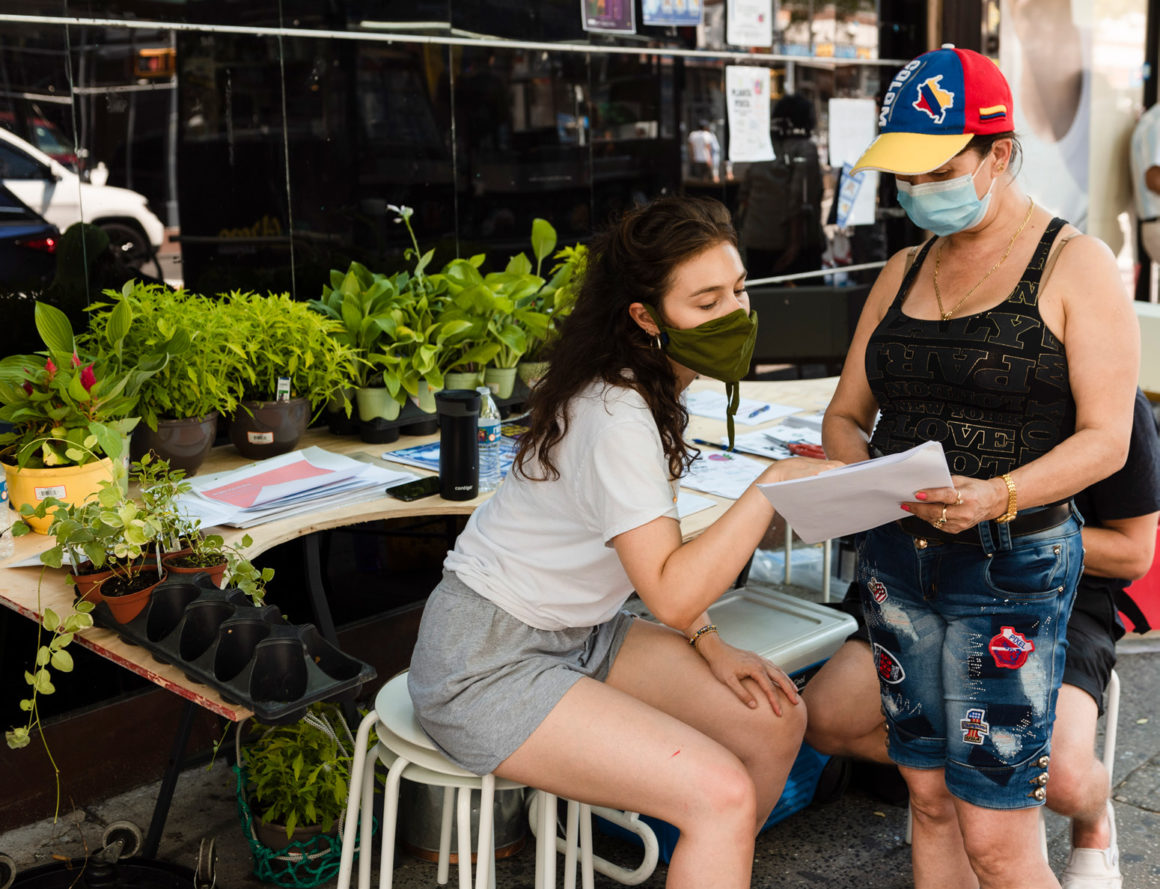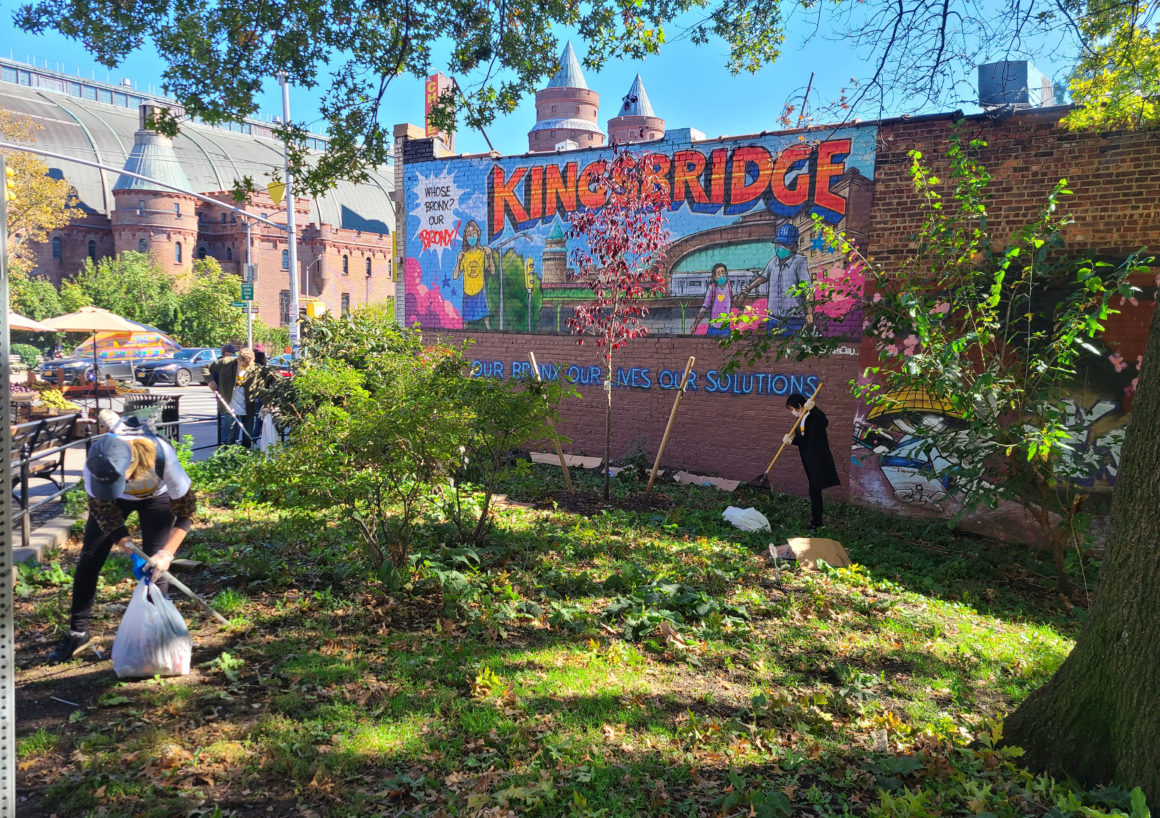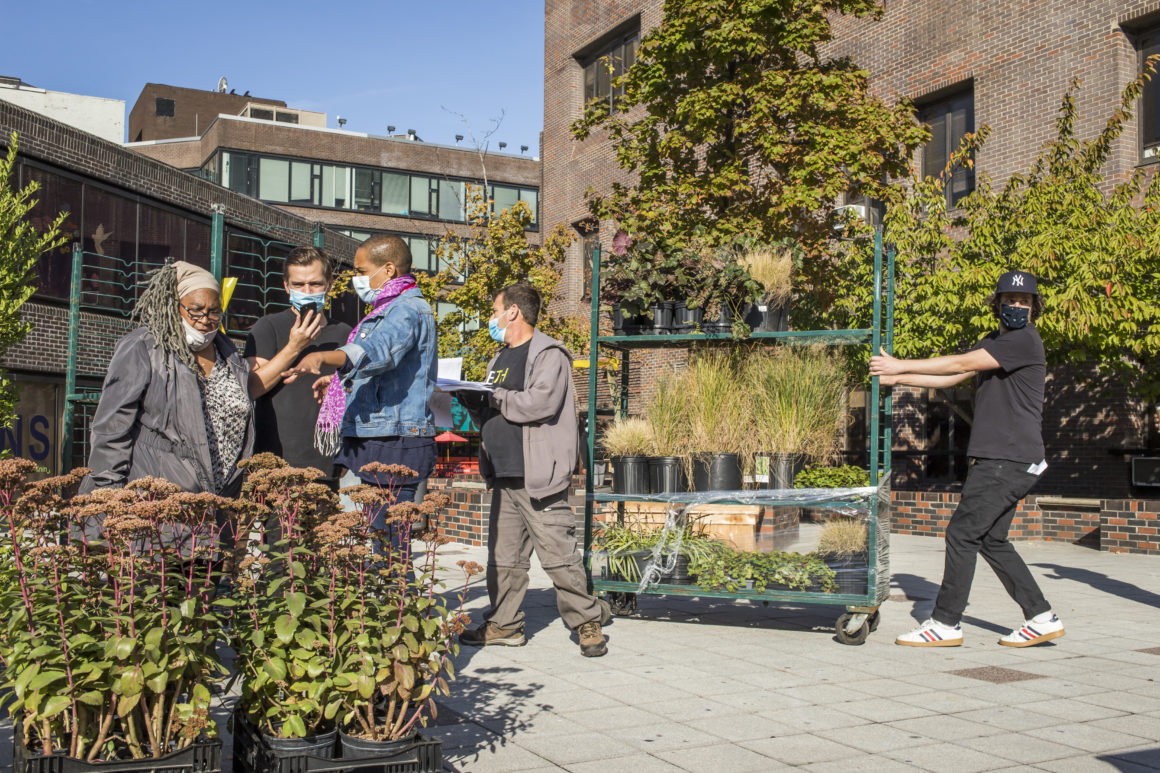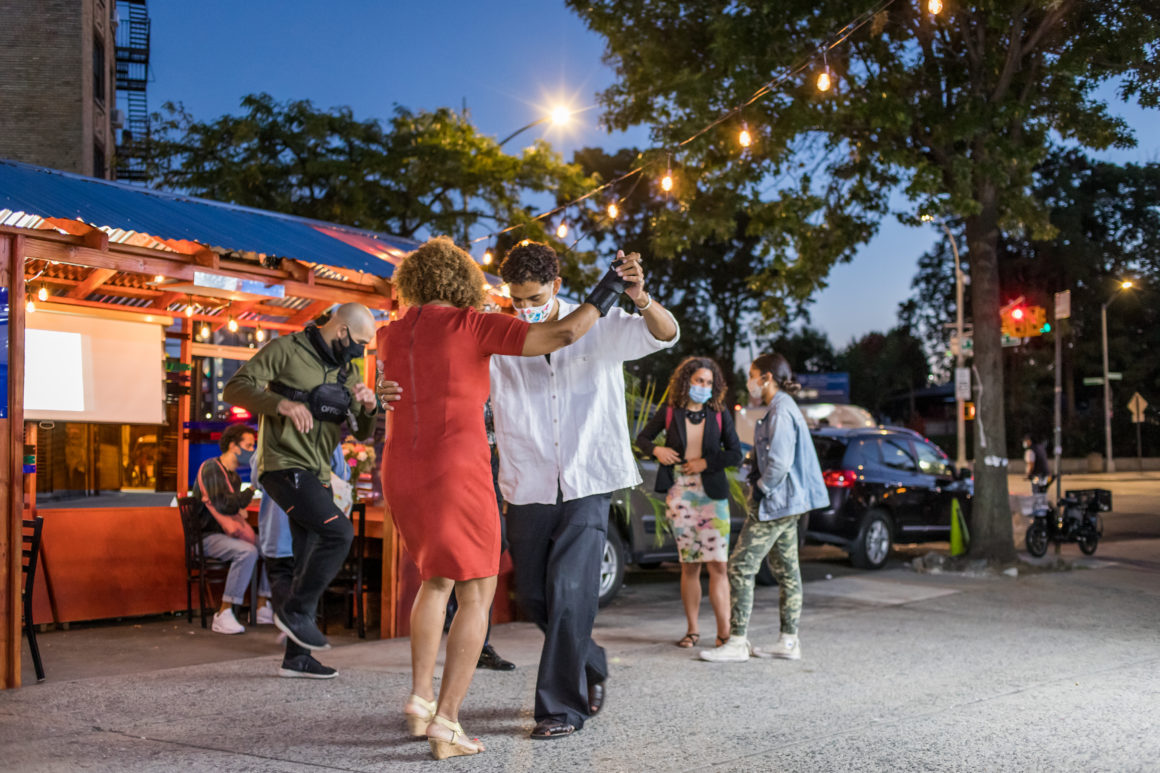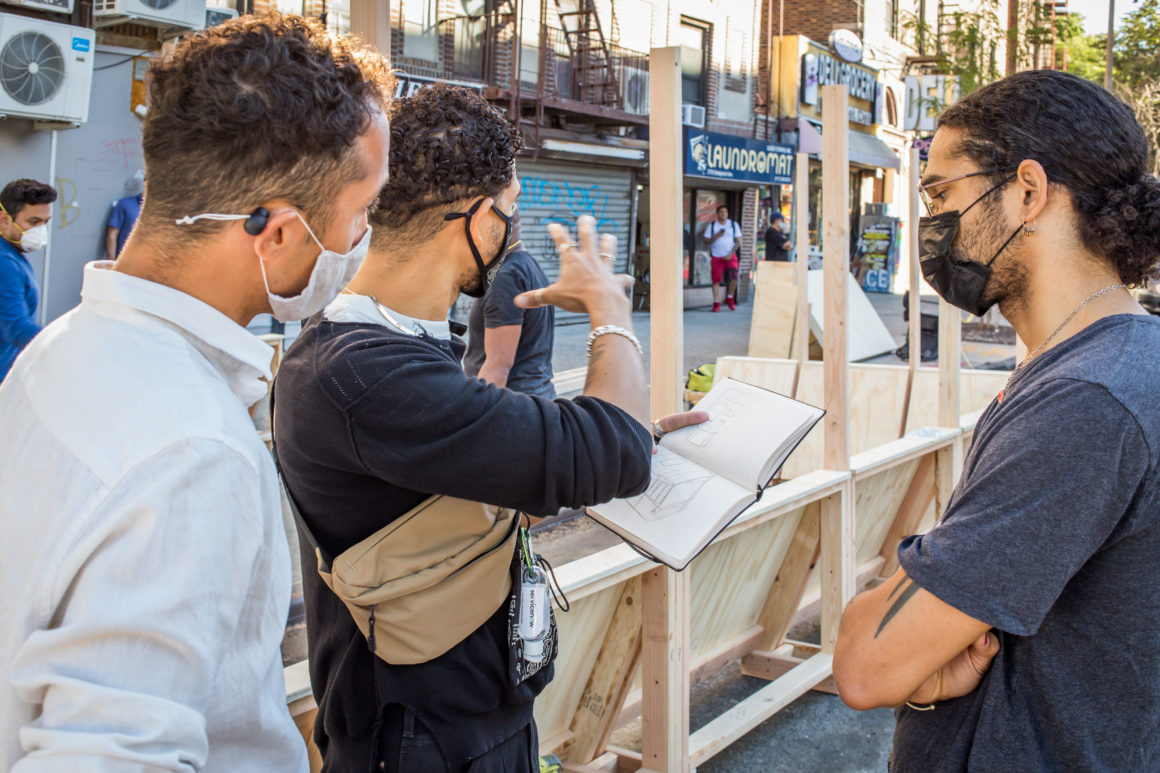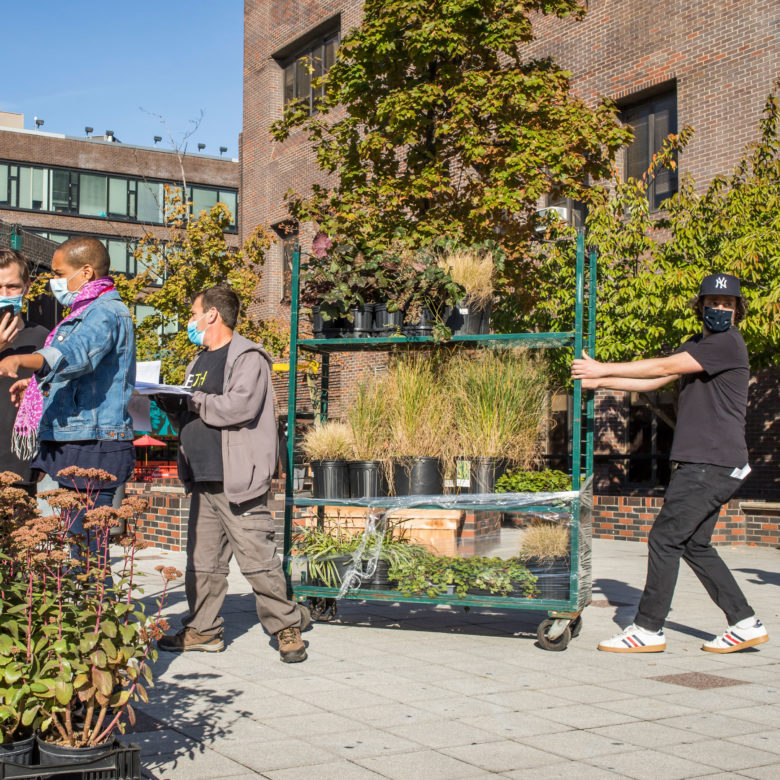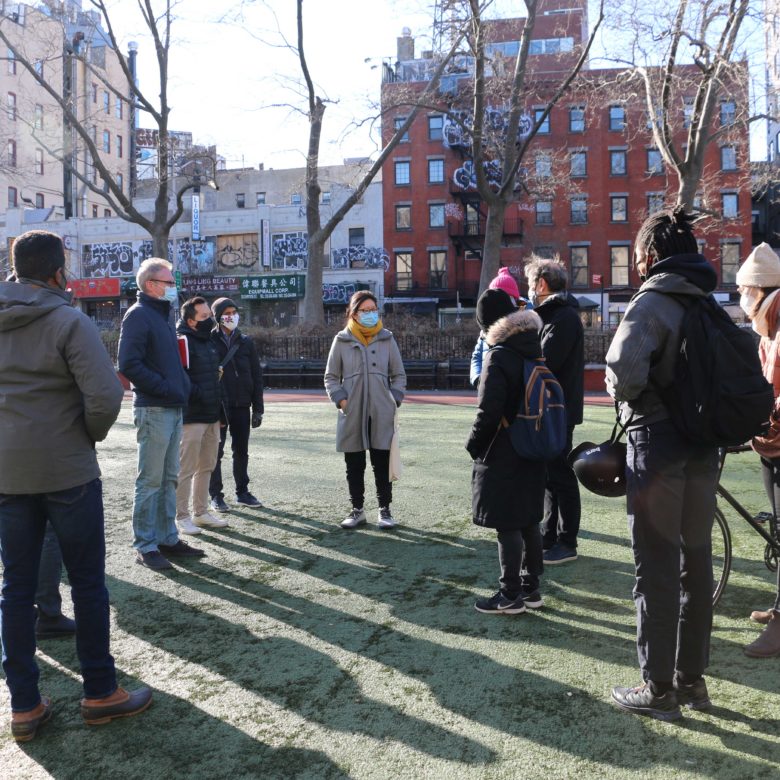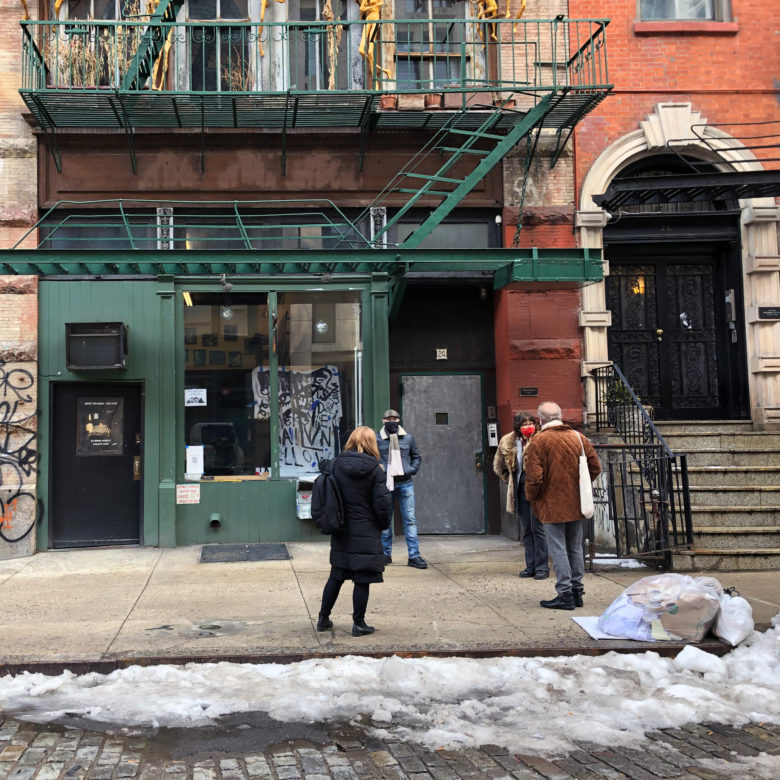About these Recommendations
The COVID-19 pandemic has not treated New Yorkers equally. Many neighborhoods—especially communities of color and those suffering from longtime inequities—simply have not gotten the support they need to reopen safely. If enacted quickly and equitably, the policy recommendations below can make lives better for all New Yorkers.
These recommendations stem from Neighborhoods Now, an initiative by the Urban Design Forum and Van Alen Institute to channel pro-bono resources from New York-based design firms and other experts into community-driven recovery strategies. Based on the initiative’s work in 2020, Van Alen and the Forum developed 10 policy recommendations to share with New York City’s Departments of City Planning, Cultural Affairs, Parks and Recreation, Small Business Services, and Transportation, and the New York City Economic Development Corporation. These recommendations also serve as guiding principles for the initiative’s upcoming work.
Priority Recommendations
1. Prioritize neighborhoods impacted by high infection rates and with low-income populations. DOH should evaluate past COVID infection rates, and collaborate with SBS, DCP, DOT, and EDC to focus their financial and technical assistance on low- and moderate-income neighborhoods.
2. Provide targeted support for commercial corridors without a BID. With emergency financial support from the Mayor’s Office, SBS should embed small business specialists in commercial corridors without BIDs. Specialists should be equipped with the latest public health guidance; provide financial, legal, and technical assistance; and conduct on-site support whenever possible.
3. Support embedded community organizations taking proactive approaches. Community organizations play a critical role in translating citywide guidance and resources for small businesses, civic and cultural organizations, and immigrant communities. The Mayor’s Office, SBS, EDC, DCP, and DOT should provide additional grants and technical assistance to these organizations.
4. Minimize NYPD’s impact on permitting Open Streets and Open Streets: Restaurants. Allowing NYPD an opportunity to review and deny applications before they even reach DOT review impedes the equitable distribution of these programs. The Mayor’s Office should instruct NYPD to permit Open Streets in communities without maintenance partners, and provide emergency micro-grants and training to enable CDCs and community organizations to serve as maintenance partners.
Additional Recommendations
5. Expand access to Open Restaurants and Open Storefronts through shared space. A sidewalk swap program would enable businesses to share unused sidewalk rights with neighboring businesses. Businesseswith insufficient frontages should be allowed to negotiate permits with all landowners on the same block, across the street, or on adjacent side streets.
6. Temporarily apportion park land for open-air commerce. To enable creative ways to gather safely and promote commerce, the Department of Parks & Recreation and Department of Consumer Affairs should establish a temporary permitting process for open-air commerce in designated areas of park land,especially where streetside locations may not be suitable.
7. Make vacant public buildings available for community uses. Through flexible and short-term leasing, the Department of Citywide Administrative Services and EDC should make vacant public buildings available to nonprofit organizations seeking more space to safely deliver critical services.
8. Provide government training or grants to support lease renegotiations. The Mayor’s Office should provide emergency support to enable SBS to establish new training programs and grants to support lease negotiation, leveraging new and sustainable lease structures that other businesses and real estate companies across the city have begun to pilot.
9. Support small cultural organizations to program outdoor activities under creative permitting and safely reopen for indoor activities under guidance similar to faith-based institutions. DCLA should advocate that small performance spaces and other cultural organizations reopen for indoor activities under the same guidance extended to faith-based institutions. In the meantime, DCLA and DOT should immediately enable cultural organizations to program cultural events with concessions in DPR space and to operate outdoors in the parking lane and along the sidewalk in the mold of Open Restaurants
10. Accelerate DOB permitting for interior uses due to COVID-19 retrofits. Small businesses seeking to make their space safe for limited indoor use may require building barriers or other minor retrofits that would typically require lengthy DOB permitting. DOB should establish an accelerated, free or low-cost permitting for these cases that does not require the support of an expediter.
